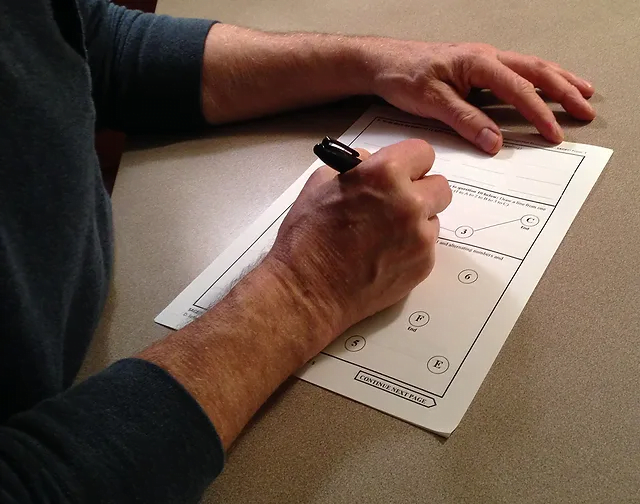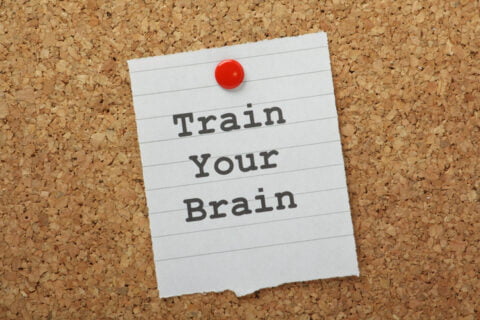If you’ve ever wondered how doctors can detect early signs of dementia, you’re not alone. With an increasing number of people facing this challenging condition, early detection has become crucial. Cognitive memory tests are essential tools in this process, providing valuable insights into cognitive health. In this article, we’ll explore various cognitive memory tests, their purposes, and how they can help identify cognitive decline and dementia. Let’s dive into the world of cognitive assessments and understand their significance in early dementia detection.
What is the Cognitive Test for Early Onset Dementia?
Early-onset dementia can be particularly challenging to diagnose due to its rarity and the overlap of symptoms with other conditions. Cognitive tests specifically designed for early onset dementia include a combination of memory, problem-solving, and language assessments. These tests aim to identify any deviations from normal cognitive functioning, which could indicate early signs of dementia.
Commonly used tests include the Mini-Mental State Examination (MMSE) and the Montreal Cognitive Assessment (MoCA). These tests assess various cognitive abilities, such as orientation, short-term memory, language skills, and the ability to follow simple commands. By evaluating these areas, doctors can gauge the severity and progression of cognitive impairment.
What is the 30 Question Cognitive Test for Dementia?
The 30-question cognitive test, also known as the Mini-Mental State Examination (MMSE), is a widely used tool for assessing cognitive impairment. This test is simple and quick, typically taking about 10 minutes to administer. It covers various cognitive domains, including orientation to time and place, immediate recall, short-term memory, language abilities, and basic motor skills.
The MMSE is particularly useful because it provides a standardized method for evaluating cognitive function, allowing healthcare providers to track changes over time. While it is not a definitive diagnostic tool, the MMSE can indicate whether further evaluation is needed.
What are the 30 Questions on a Cognitive Test?
The 30 questions in the MMSE cover a range of cognitive functions. Here are some examples of the types of questions asked:
- Orientation to Time: “What is today’s date?”
- Orientation to Place: “Where are we right now?”
- Registration: The examiner names three objects, and the patient must repeat them.
- Attention and Calculation: “Subtract 7 from 100, and then keep subtracting 7.”
- Recall: “Can you recall the three objects I mentioned earlier?”
- Language: “Name this object (e.g., pencil).” “Repeat the phrase ‘No ifs, ands, or buts.'”
- Repetition: The patient is asked to repeat a specific sentence.
- Complex Commands: “Take a piece of paper, fold it in half, and put it on the floor.”
These questions are designed to evaluate different aspects of cognitive function, helping to identify areas of concern.
What is the 12 Question Test for Dementia?
The 12-question test, often referred to as the Abbreviated Mental Test Score (AMTS), is another tool used to assess cognitive impairment. This shorter test includes questions like:
- “How old are you?”
- “What is the year?”
- “What is your address?”
- “What time of day is it?”
- “Who is the current president?”
The AMTS is particularly useful in situations where time is limited, providing a quick overview of cognitive function. It is commonly used in general practice settings as a preliminary screening tool.
What is the Most Commonly Used Cognitive Evaluation Tool for Detecting Cognitive Impairment and Dementia?
The most commonly used cognitive evaluation tool for detecting cognitive impairment and dementia is the Mini-Mental State Examination (MMSE). Its widespread use is due to its simplicity, effectiveness, and the broad range of cognitive functions it assesses. The MMSE provides a quick snapshot of a person’s cognitive abilities, making it a valuable tool for initial assessments.
What is the Most Widely Used Cognitive Assessment Tool?
The Montreal Cognitive Assessment (MoCA) is another widely used cognitive assessment tool. It is particularly popular because it is sensitive to mild cognitive impairment, which may not be detected by the MMSE. The MoCA assesses various cognitive domains, including attention, executive functions, memory, language, and visuospatial skills.
The MoCA’s comprehensive approach makes it a preferred choice for detecting early signs of cognitive decline, especially in individuals with higher education levels where the MMSE might not reveal subtle deficits.

What is the 5 Minute Test for Early Dementia?
The 5-minute test, often known as the Mini-Cog, is a quick and effective screening tool for early dementia. It combines a simple three-item recall test with a clock-drawing test. The patient is asked to recall three unrelated words and then draw a clock, including numbers and hands indicating a specific time.
The Mini-Cog is valuable because it takes minimal time to administer and requires minimal training for healthcare providers. It is an excellent tool for routine screenings in primary care settings.
Is There a Test for Beginning Dementia?
Yes, there are several tests designed to detect the beginning stages of dementia. These tests typically assess memory, language skills, and executive function. The Montreal Cognitive Assessment (MoCA) is particularly sensitive to mild cognitive impairment and can identify early dementia symptoms.
Early detection is crucial as it allows for timely intervention and management, potentially slowing the progression of the disease.
What Cognitive Test do Neurologists Use?
Neurologists often use a battery of tests to assess cognitive function, including the Mini-Mental State Examination (MMSE), Montreal Cognitive Assessment (MoCA), and the Clock Drawing Test. These tests help neurologists identify the specific areas of cognitive decline, which can aid in diagnosing the type of dementia and planning appropriate treatment.
How Can I Test Myself for Early Dementia?
Self-testing for early dementia can be challenging, as most tests require a trained examiner. However, some online tools and resources can provide a preliminary assessment. It is essential to approach self-testing with caution and to consult a healthcare professional for a comprehensive evaluation.
What is the Self Cognitive Test for Dementia?
Self-cognitive tests for dementia often include online quizzes or apps designed to assess memory, attention, and problem-solving skills. While these tools can provide some insights, they should not replace a professional evaluation. If you suspect cognitive decline, it is crucial to seek medical advice for an accurate diagnosis.
What is the Quick Home Test for Dementia?
The Quick Home Test for Dementia, such as the Sage Test (Self-Administered Gerocognitive Exam), is designed for use at home. It includes tasks like drawing, solving simple arithmetic problems, and answering questions about time and place. While helpful, these tests should be followed up with a professional evaluation if they indicate potential cognitive issues.
What is the Quick Cognitive Test for Seniors?
The Quick Cognitive Test for Seniors, like the Mini-Cog, provides a brief assessment of cognitive function. This test is easy to administer and can be done in a home setting. It is an excellent tool for regular monitoring of cognitive health in older adults.
What is the Early Dementia Screening Tool?
Early Dementia Screening Tools, such as the MoCA and MMSE, are designed to detect early signs of cognitive impairment. These tools assess various cognitive domains, providing a comprehensive overview of an individual’s cognitive health. Early screening is vital for timely intervention and care planning.

What is the 2 Finger Test for Dementia?
The 2-finger test is a simple screening tool where the patient is asked to follow commands involving their fingers, such as “Show me two fingers.” This test assesses basic motor skills and understanding of commands. While not comprehensive, it can be part of a broader cognitive assessment.
What is the 3 Word Test for Dementia?
The 3-word test is part of many cognitive assessments, including the MMSE and MoCA. In this test, the patient is asked to remember three unrelated words and recall them after a short period. It assesses short-term memory and recall ability, which are often affected in dementia.
How to Remember 3 Words in a Cognitive Test?
Remembering three words in a cognitive test can be challenging, especially for individuals experiencing cognitive decline. Here are some tips to help:
- Association: Link the words to familiar objects or concepts.
- Repetition: Repeating the words multiple times can aid in retention.
- Visualization: Visualizing the words in a scene or story can enhance memory.
These strategies can be helpful in improving recall during cognitive assessments.
What is One of the First Signs of Cognitive Decline?
One of the first signs of cognitive decline is often memory loss, particularly short-term memory. Individuals may struggle to remember recent events or conversations, misplace items, or forget appointments. Recognizing these early signs is crucial for timely intervention.
What are Two Early Symptoms of Dementia?
Two early symptoms of dementia are:
- Difficulty Finding Words: Individuals may struggle to find the right words during conversations.
- Disorientation: Getting lost in familiar places or forgetting the current date and time are common early symptoms.
These symptoms can be subtle initially but tend to become more pronounced as the condition progresses.
What is the Best Memory Test for Dementia?
The best memory test for dementia varies depending on the individual’s condition and the stage of the disease. The Montreal Cognitive Assessment (MoCA) is often considered the best for detecting mild cognitive impairment and early dementia due to its comprehensive approach. Also check : Find your cognitive age
Frequently Asked Questions
A cognitive memory test is a series of questions or tasks designed to assess mental functions like memory, attention, language, and problem-solving skills. These tests help healthcare providers identify potential cognitive decline or dementia.
Common cognitive memory tests include the Mini-Mental State Examination (MMSE), the Montreal Cognitive Assessment (MoCA), and the 3-Word Test.
While there are online cognitive tests available, they cannot replace a professional evaluation. For accurate results, it’s best to take a test administered by a healthcare professional.
Early signs of cognitive decline include memory loss, difficulty with familiar tasks, problems with language, changes in mood or behavior, and challenges with reasoning or problem-solving.
The frequency of cognitive tests depends on factors like age, family history, and overall health. Regular check-ups with your neuropsychologist can help determine the appropriate testing schedule.
If you score poorly on a cognitive memory test, it’s essential to consult with a neuropsychologist for further evaluation. They can help determine the cause of any cognitive decline and recommend appropriate steps.
While there’s no cure for dementia, early detection and intervention can help manage symptoms and slow cognitive decline. Lifestyle factors like physical activity, mental stimulation, and a healthy diet can also contribute to cognitive health.
Supporting someone with cognitive decline involves patience, understanding, and creating a safe environment. Providing clear and simple instructions, maintaining routines, and offering emotional support are crucial.
Caregivers play a vital role in supporting individuals with dementia. They provide daily assistance, emotional support, and manage the challenges associated with the condition.




